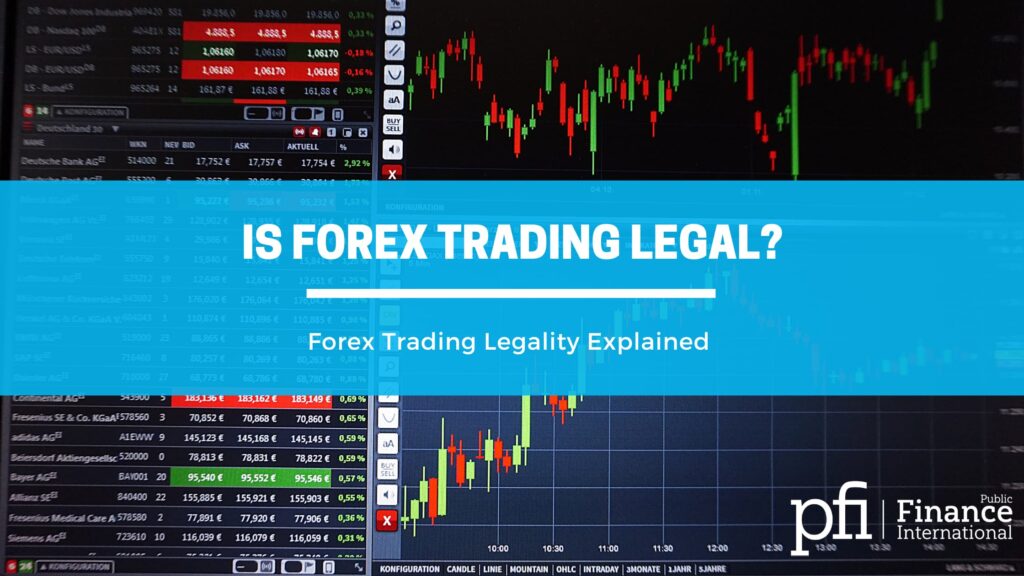In this article, we discuss whether forex trading is legal. What practices can retail traders use to expand their forex experience, including scam and malpractice prevention? Let’s look at what goes into foreign exchange trading and the regulations surrounding it across the globe.
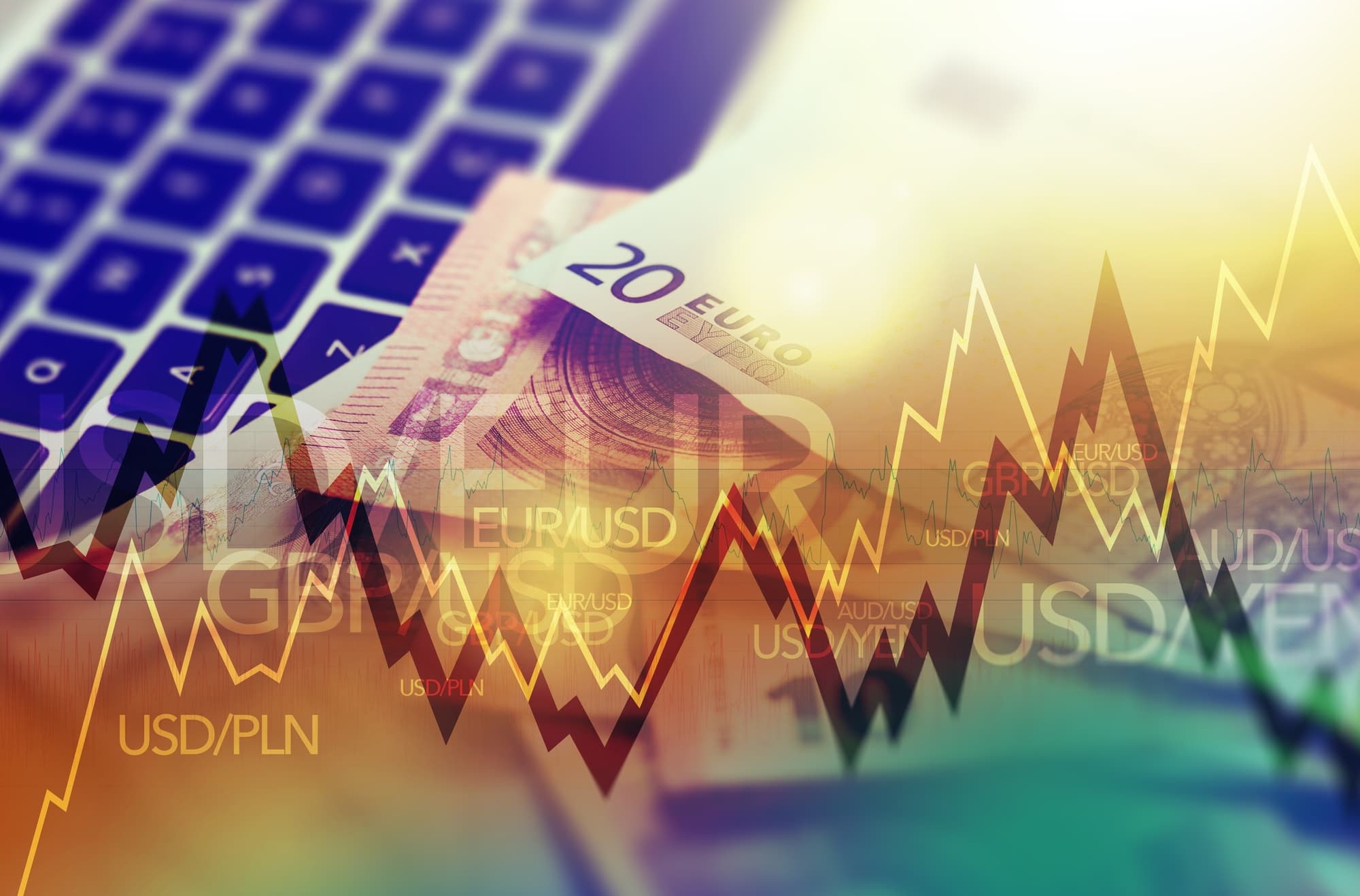
Is Online Forex Trading Legal?
To summarize, forex trading is completely legal. However, different jurisdictions have laws in place that both traders and brokerages have to adhere to. If you are interested in online forex trading, make sure you check your local laws and brokers' credentials.
Forex trading is legal across the globe. While not all nations allow for unfettered exchange, no nation currently bans forex trading outright.
Why Would Forex Trading Be Illegal or Restricted?
While forex trading is legal in many nations, it isn’t allowed everywhere without guidelines. Some nations impose restrictions or outright ban the trading practice. These reasons tend to fall under safety or financial concerns for the nation. Here are some details:
Safety Concerns
Forex trading is among the riskiest financial markets. The average retail investor generates and realizes losses when engaging in forex trading, causing these individual investors to lose their hard-earned money and exit the market.
Some governments believe that forbidding forex brokerages from operating in their nation is better than the small upside some investors see with forex trading. Others impose restrictions on trade volumes and establish brokerage limits to prevent massive losses from occurring.
Average Leverage Strategies
One of the reasons forex trading is risky is that many investors involve themselves with leverage. This practice allows an investor to stretch their money further, investing more than they otherwise could.
However, if the investor makes a bad decision, they can lose some or all of their leveraged funds when the brokerage makes a margin call. Thus, some governments ban leverage as a forex strategy or force brokerages to be upfront and clear about the risks of leveraging funds as part of clients setting up a leverage account.
Fixed Currencies
Some nations work with central banks to stabilize their currency’s value, creating a fixed currency. Nations that follow this practice tend to have tougher regulations on forex trading because of the damage it can do to the nation’s economic system.
Say that a foreign nation’s currency starts to dip in value. Forex investors in a fixed currency system might divest from their currency into this devaluing foreign currency to try and earn a better return. Enough investors can cause a bank run of the nation’s cash, causing an economic downturn.
Thus, many of these nations restrict or ban forex trading to prevent foreign markets from crashing their economies.
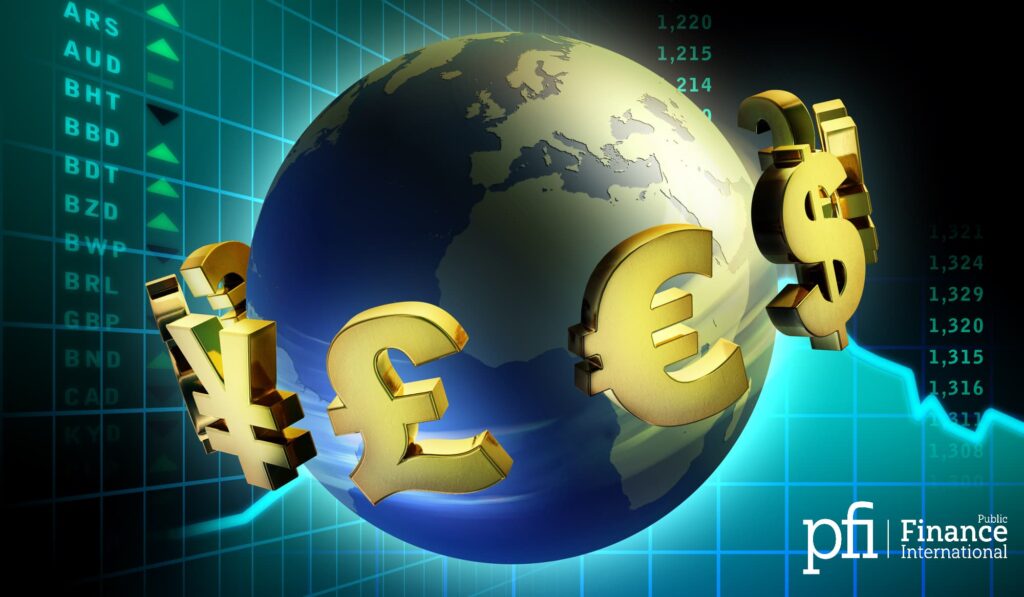
Some Popular Countries Where Forex Trading is Legal
Despite the negative opinions some governments or individuals have about forex trading, the practice is not illegal in any nation at the moment. Thus, for these questions, the answer is yes:
- South Africa: Yes
- Australia: Yes
- USA: Yes
- UK: Yes
- India: Yes
- Canada: Yes
- Europe: Yes
- UEA and Dubai: Yes
- Malaysia: Yes
However, some of these nations impose restrictions or regulate forex trading. Investors will need to check up on the rules they need to trade by based on their nation of residence.
Where Is Forex Trading Illegal?
Forex trading is not illegal in any nation currently. The outright ban on forex trading would prevent international commerce and tourism, a revenue stream that no nation wants to lose.
However, nations have different approaches to the rules and regulations guiding forex trading. Overall, there are three categories of regulations:
- A-grade broker regulations: Stringent regulations in effect, such as high capital requirements, laborious trading rules, and steep fees for non-compliance
- B-grade broker regulations: Moderate regulations in effect, including minimum capital requirements, simple reporting standards
- C-grade broker regulations: Little to no regulation on forex trading, including no capital requirements or reporting standards
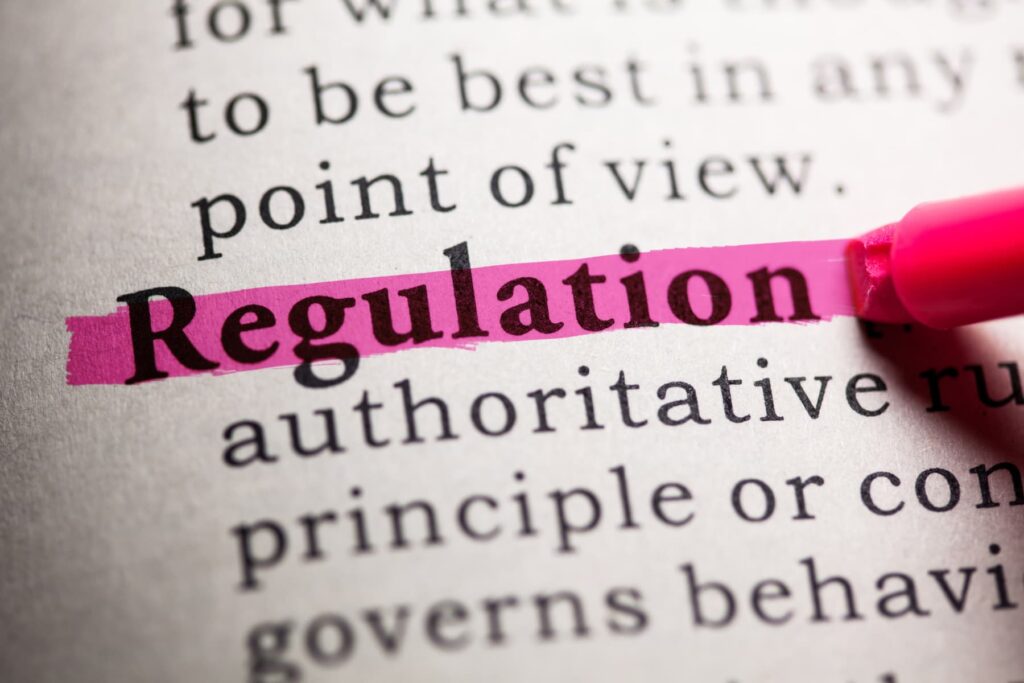
Some examples of nations following the regulatory oversight standards include:
- A-grade: United States of America, Japan, Singapore, Germany, UK, Australia
- B-grade: The Bahamas, New Zealand, South Africa, Dubai, Malaysia
- C-grade: Belize, Cayman Islands, British Virgin Islands
Forex Brokerage Trading Scams
The majority of forex trading today happens through online brokerages. These online platforms make forex trading accessible and fast compared to past methods, but this convenience comes with a catch: scammers have an easier time setting up traps. A large number of pyramid schemes are done through forex trading.
Not all brokerages have positive reputations. Some use scams or malpractice to profit from their users. The two common types of forex scams for these amoral brokerages are frontrunning and ghosting.
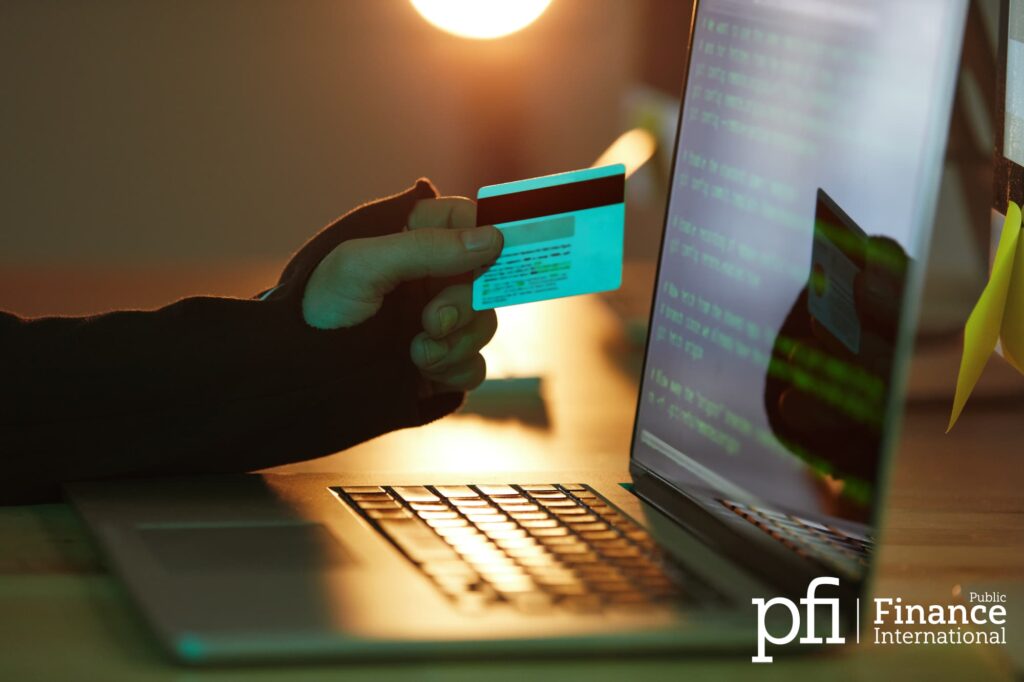
Frontrunning
Frontrunning refers to a practice where a trader gets information on a trade from another trader and cuts ahead to seal a better deal. In forex trading, this refers to someone sneaking their order in before a larger order, expecting the large order to disrupt the market and give the frontrunner a chance to make a quick buck.
Brokerages use an online order book to track and settle forex trades. Some brokerages wait for a certain trade before putting in an automatic trade. In doing this, the brokerage can make money on the change in the market before the large order goes through.
Spoofing/Ghosting
Another tactic that involves large orders comes is spoofing or ghosting. These terms refer to traders putting in large orders that they don’t want to fill. However, placing this order in a public record shows other traders that big moves could happen on that exchange, drumming up interest and market volume.
The increased market volume ideally causes the market to move in the direction the trader that placed the large order wants it to go, allowing them to capitalize on the revitalized market before the other traders realize the deception.
What Is Forex Trading?
Forex trading is the exchange of currency into another currency for commerce, investing, or tourism. Forex itself is a portmanteau of the words foreign and exchange, referring to individuals converting their currency to a different nation’s currency.
The exchange of currencies has been around for hundreds of years and continues to grow alongside globalization. In 2019, an average of $6.6 trillion in foreign currency exchange happened. That amount of money makes it an enticing investment opportunity.
While most forex trading volume goes towards international commerce and tourism, investors tend to refer to forex trading for its potential investing and value-generation benefits. This form of forex trading allows investors to invest in speculative currencies or divest some of their cash into a different currency before its value drops.
Like stock trading, forex trading uses ticker signs to track its value compared to a baseline, usually the native currency of the user or the brokerage offering the data.
Forex trading is sometimes called FX trading. There is no difference between what these two terms refer to.
How Forex Trading Works
Not all forex traders use the same strategies. Much like stock trading, forex traders use different tactics depending on what their financial goals are. Here are some examples of the different types of trades forex investors will make:
Scalp Trades
These trades refer to positions held for a few seconds or minutes at most, restricting the profits they can make to the small swings in the market.
Scalp trades seek to help forex traders rack up lots of small profits over the day, yielding a sizeable profit only after several trades. Thus, this type of trading tends to stay contained to the busiest times of the day and with the most liquid pairs of currencies.
Day Trades
Another form of short-term trading involves holding on to one side of a currency pair for a few minutes or hours.
In addition to using market volatility to their benefit, day traders also long into technical indicators and overall currency performance to inform their decisions about when to buy and sell; Most day traders rely on multiple trades over the day to obtain worthwhile profits, but not nearly as many as those using scalp trades.
Swing Trades
Even longer than day trades are swing trades, which rely on holding a position for a day or longer.
Many swing trades rely on factors outside of general market volatility to get the most out of their capital. Government announcements, overall market sentiment, and developing news all affect how a swing trader might approach their decision-making for a currency pairing.
These types of trades also rely on the technical analysis of a currency pair.
Position Trades
Position trades are the long-term plays of the forex world. These trades involve a trader holding onto a position for months or years, with the belief that a particular pair will generate high yields in the long term.
Rather than relying on technical indicators, position traders use fundamental analysis of the underlying currencies to make their decisions. As an example, currencies that seem like they could recover in value over the next year or currencies of developing nations could be good selections for long-term position trading.
How To Find a Good Forex Broker
Finding a good brokerage will reduce the chances that you lose your money due to malpractice or scams. However, with the numerous options out there for brokerage choices, choosing the right one will be tough without knowing some guidelines and best practices to use in your search.
To find a good forex broker, follow these tips and practices:
- Ensure that your brokerage operates in a nation with high regulations, regulated licence and reporting standards
- Look for the brokerage on the nation’s regulatory board, such as the United States Securities and Exchange Commission for US FX brokers
- Run some online searches for the brokerage’s name to see if any legal cases or regulatory malpractice news comes up in the news
- Search their website for any audit or practice review results, as well-governed brokerages will make these documents public
- Call the brokerage and see if you can talk to a representative about regulatory adherence and account options to see if their online details or promises match up
- Do a test deposit and test withdrawal from the brokerage once your account goes up to see how accessible your money is and how quickly the brokerage operates
Other Uses of Forex Trading
Traders can use forex trading to do more than just generate revenue for themselves or their investment firm. Some businesses and similar entities enter into forex trading to protect their bottom line or develop in ways unrelated to straight profit generation. Some examples of these practices include hedging and speculation.
Hedging Strategies
Companies that do business in the international market have to contend with the volatility of currency pairs just like forex traders do. However, these businesses look to the forex market not to adjust their profits from trades, but instead to determine their prices across different markets.
Some businesses use a forward or swap market to lock in an exchange rate for a certain period. This agreement allows the business to set its prices across different nations.
However, what happens if one of those currencies loses value while the second currency maintains its value during the agreement period?
In these cases, a business can preemptively trade some of its cash reserves into the currency they believe will maintain its value. Doing this then allows the company to maintain more of its value during the agreement period, helping offset any profit loss due to the decreasing value of the other currency.
The company could also sell off these reserves and buy into the currency with decreasing value if it believes it can negotiate a better exchange rate for the next agreement or if it believes the currency will recover in time to trade up in value.
Regardless of why a company would do this, hedging allows a company to maintain some of its cash reserve value while also offsetting future losses due to currency devaluations.
Futures/Speculation
Much like forex traders, some companies might look to developing news around currencies to change how the company holds its cash for the future. Many of the same factors that affect position trading, such as interest rates, tourism rates, and geopolitical news, also affect speculation for companies.
For example, a business that operates internationally might believe that one currency will maintain its value while another will increase in value. The company might move more of its reserves to the currency it expects to increase in value. If this change occurs, the company will have more buying power when converting to the currency that maintained its value since it would now be a better exchange rate.
While most position traders would see this as a revenue win, the company might have other ideas in mind. This bump in value could allow the company to invest further into operations for that nation’s market at a better rate than it could before. It could also help reduce operational costs since the currency now uses up a small portion of the company’s funds to maintain.
Final Thoughts on Forex Legality
The good news about forex trading’s legality is that it isn’t banned anywhere in the world right now. So, traders can get into this market from just about anywhere, especially thanks to the online tools many brokerages offer today.
However, forex trading comes with many risks. In addition to the higher volatility and leverage exposure, forex trading offers compared to other markets, forex trading scams are easier to pull off in areas of low regulation.
If you want to try getting into forex trading, learning about reputable brokers and smart trading strategies will reduce the chances of encountering fraud or malpractice. Forex trading can be risky but also a great entry point into the world of trading.
FAQ
Below are answers to some of the other questions that come up when discussing if forex trading is legal:
Is it safe to trade forex?
While forex trading is legal, it is a high-risk market and may not be safe or responsible for every trader. There can be a significant risk to forex trading, especially with the leverage most retail traders rely on to get more exposure to the market. Learning how to do forex trading well comes with risk management and solid trading strategies.
Why is forex high risk?
Forex trading is a high risk due to the increased volatility of the market and the leverage many traders expose themselves. These factors mean that many traders can lose all their investments from a single, temporary downturn.
Is it legal to trade forex in the US?
Forex trading is legal in the US, as well as across the world. US forex brokers have to follow strict operational and reporting guidelines to maintain their business, though. While these regulations make it tougher for brokerages to operate in the US, it increases consumer protections against scams and similar malpractices.
Can beginners do forex?
Everyone has to start somewhere with new markets, including forex trading. While beginners can try their hand at forex trading, they should first open small accounts or demo accounts. Doing this will ensure that, if things go poorly, the beginner won’t lose more money than they could afford to lose.
